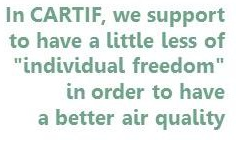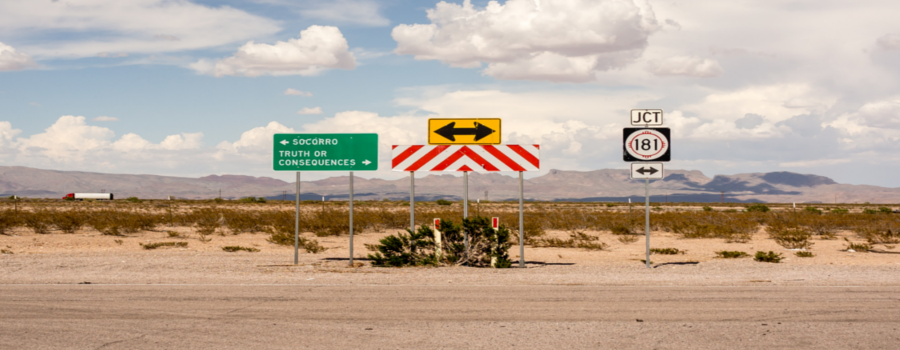In the first part of this post, we talked about the conclusions we heard in an interesting conference about air quality. After that, we decided two to do two things. On the one hand, to share the figures and conclusions there exposed and on the other hand, to work at self-examination, thinking about our behavior as citizens. What happens when someone asks us if we are willing to use public transport more often? Or to organize ourselves to reduce the number of our daily trips using the private car? We broached the subject of our rights:

• We have a right to buy wherever we want. We love e-commerce. We are able to buy Chinese oranges on the internet and to ask for bringing them to our home. And if we were not there when company arrives, we are asking for returning another time. To exercise this right involves the use of vans to our home with very low occupancy rates. And not visit the neighborhood greengrocer, of course!
• We have a right to have the car we want, with a good engine and diesel (don’t forget it is cheaper), even for an urban use such as shopping or bringing children to school
• We have a right to move anywhere within the urban public space. We intend to arrive to the center of our city driving and to find available parkings there. It is better than largest urban parks.
• We have a right to choose where to live and normally, we prefer the suburbs, with good quality of life (and good air). Moreover, we are moving with our private car whenever necessary, regardless of the reason. And of course, being the only occupant of our vehicle.
• We have a right to have public transport, anywhere and at any time, although sometimes the transports are running practically empty at certain periods.
• We have a right not to meet delivery vans in the middle of the street and we agree on the fact that Authorities restrict the time in which they are able to circulate through the city center. This means that companies have to increase their fleet with vans with poorer quality in order to have more available units and, consequently, to ensure orders. Including our oranges.
• We have a right to have dumpsters on our doorstep, with frequent domestic rubbish collection. If we do not check that truck passes several times a day, we are complaining.
• We have a right to review our vehicles periodically, but we order to companies which carry out the compulsory vehicle tests not take too long in the review and not to be expensive. Implementing appropriate control systems for detecting “big high-polluting cars” would require longer reviews and a higher price.

We are sure that you have ever used these rights to defend your comfort zone but, in CARTIF, we are convinced too that, with a little effort, we could change our habits by more sustainably customs. We know that awareness always takes time, but the same situation happened when the waste separation was legislated or when smoking in public places was banned, and both or them are now fully integrated into our daily practices.
For this reason, we are asking the authorities to let experts advise them both for implementing more measures to encourage sustainable behaviors and to penalize those which are damaging in excess. That is, we should support to have a little less of “individual freedom” in order to have a better air quality.
Because with the use of “our rights” what we are really doing is limiting the freedom of others. The elderly, children or people with respiratory diseases are risk groups and their health largely depends on the quality of the air they breathe.
Miguel de Cervantes wrote in his work Don Quixote: “Freedom, Sancho, is one of the most precious gifts that heaven has bestowed upon men; no treasures that the earth holds buried or the sea conceals can compare with it; for freedom, as for honour, life may and should be ventured (…) “.
Then, let us venture.
- Education is more than content - 5 November 2021
- Fumes! (II) - 21 June 2016
- Fumes! (I) - 7 June 2016

